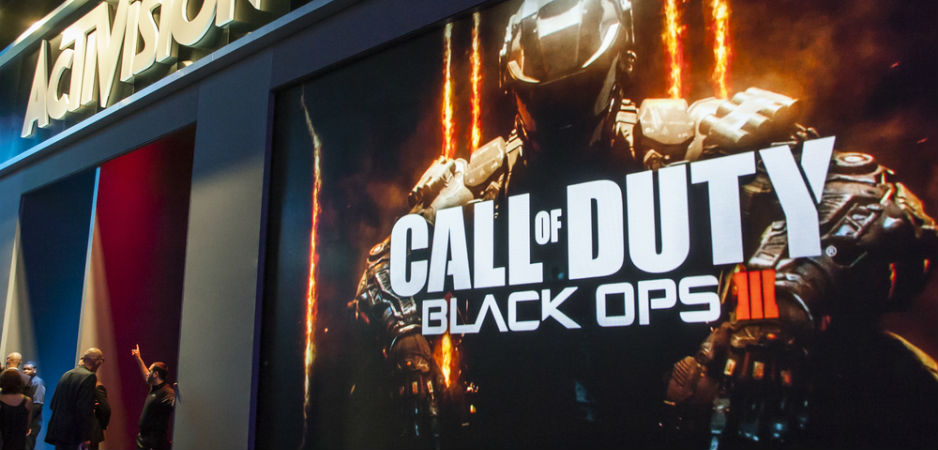Right-wing groups say that having good guys own and carry guns protects them from bad people. That is false.
On an average day, 85 Americans die and more than 200 are rushed to the emergency room due to gun violence. An average week brings one shooting at a school and one shooting by a toddler. The implicit or explicit threat of gun violence has intimidated African American students at the University of Missouri, legislators, active citizens, mothers, black churchgoers and Muslim community members.
Similar countries’ rate of homicides using firearms is about 20 times lower than in the United States. Household firearms in just five weeks kill 3,400 Americans, the same number who have died from terrorist activity since 2001. Since 1968, 1.4 million Americans have died from gun violence. Since 1776, 1.4 million were killed in all wars (both recent tweets by astrophysicist Neil deGrasse Tyson.)
After the Umpqua Community College shooting in October, President Barack Obama bemoaned the “routine” coverage of mass shootings. Yet Americans are reinvigorated for this critical, winnable fight: gun violence prevention groups are growing in reach and power, celebs are speaking up, and even Jon Oliver showed how Australia took steps to end mass shootings in just three months.
Still, the issue remains neither accurately framed by the media, nor discussed in terms of effective, multi-faceted solutions.
Right-wing groups say that having good guys own and carry guns protects them from bad people, suggesting that adding to the 300 million guns in America would curtail violence. This false, routinely cited narrative stymies progress on preventing gun violence. We need to focus on the following five uncomfortable, pertinent realities:
The coverage of gun violence
When gun violence was perceived as an inner city problem, it supposedly reflected gang violence, gun trafficking, widespread access to guns, a depraved culture and music, poor parenting and a criminal mentality.
Now, white males are behind most high profile crimes, including right-wing terrorism—which is responsible for more deaths than Muslim extremist actions—and school shootings. In fact, Malcolm Gladwell recently wrote the school shooters follow easy-to-emulate cultural scripts. Yet gun violence today is often framed as acts of “lone wolves” who are “mentally ill,” despite just 5% of homicides (albeit 90% of suicides) involving serious mental illness. Culture and community remains key.
Gun perpetrators and gender
Gun perpetrators have a gender. The vast majority of suicides by gun, which comprise six in ten of all gun deaths, are by men. In fact, suicide was recently identified as a major cause for the jump in deaths among white, middle-aged men.
Additionally, about 90% of homicides are committed by men, with 99% of mass shooters being male. The majority have a “catalyst for the shooting … that threatened the man’s identity as a man.”
Yet little gun violence coverage is devoted to masculinity.
Guns and domestic violence
One in three teenagers has experienced some form of dating abuse, with one in ten teens being physically hurt by a partner. A quarter of women experience domestic violence.
A gun’s presence poses a risk for all. It makes it five times more likely an abused woman will be murdered, and in 10% of incidents by shooters in populated areas (active shooter incidents), a current or former partner is targeted.
Violent cultural entertainment
Many kids (and adults) spend many hours each week enjoying realistic depictions of war zones and crime scenes—places with easy access to guns, rampant violence and brutal gore. Yet the pain and sorrow associated with real world gun violence is often missing.
This likely leads to desensitization and less empathy, with brain changes that are linked to aggression and psychopathy. So the trade-in of The Brady Bunch, Pac-Man and Playboy for The Walking Dead and Homeland, Call of Duty and violent porn is hugely problematic.
In fact, were the nationalities or other characteristics of actors in entertainment changed, we might recognize much of it as promoting terrorist ideologies. Yet these crime-based videos and games are heavily marketed to children, with many parents having limited knowledge of their content and effects.
The ubiquity of guns, mental health and freedom of speech
Our society has radically changed gun laws. Now, just a handful of states explicitly bar “open carry,” which is no more effective than other protective action and may increase the risks to one’s self, others and the police. It has also become easier to carry a concealed gun with the proliferation of “shall pass” laws that make it harder for officials to deny a permit, even when there is a reason to do so. Additionally, a number of states now allow guns in bars, schools and/or parks.
Ironically, this is happening in a population that struggles with their mental health. One in five American adults is on a psychiatric medication. One-quarter binge drank in the last month. And one in three college students felt depressed in the last three months (one in 11 contemplated suicide in the past year).
Guns amp up risks. We know the presence of a gun increases the chance of suicide. It can also lead two individuals to be more aggressive in an exchange.
Conversely, so-called Second Amendment rights often trample those granted by the First Amendment. Guns, even by their mere presence, can intimidate those disagreeing with a gun owner on racial, gender or political issues. This can result in many choosing not to express themselves or protest out of fear of being shot, even when they are not explicitly threatened with death. Yet right-wing gun groups rarely condemn such intimidation.
So What?
Few, if any, peaceful nations have omnipresent guns, with many not registered to the owner. Conversely, individuals in nations in civil turmoil flaunt untraced weapons. The US must draw from solutions that have worked here and abroad.
Action to prevent gun violence has popular support. Americans are more concerned about gun violence than terrorism, and they support mental health restrictions, background checks and a federal tracking database. Here are ten solutions worthy of discussion:
1) Universal background checks, passed in Washington and Oregon, should be passed to track the other 40% of gun sales, and no sale should proceed until a check is complete (closing the “Charleston loophole”).
2) Action must be taken to address the processes of the small minority of gun dealers linked to most crime guns.
3) Funding must be provided so government inspections of gun shops can happen in a timely manner; 58% of federally firearm licensed dealers had not been inspected in the past five years, according to a government report.
4) We should consider moving toward regulation required for cars, which can also harm others—to include training, tests, health requirements, liability insurance and inspections—rather than away from it.
5) So too must we discuss severely limiting concealed and open carry to protect both the police and citizenry. Is the new warning to children, “Don’t take candy from a stranger … but ignore the man with the lethal weapon two feet from you”?
6) We must find ways to remove all guns from those who have committed interpersonal violence and those who are mentally ill, and to keep them from purchasing more.
7) Mental health services must be expanded.
8) The Centers for Disease Control and Prevention, which have been affected by a congressional ban on research, must be allowed to investigate what US Surgeon General Vivek Murthy calls a public health problem. Unbiased research from colleges and think tanks would be helpful as well.
9) We must change culture: educating all about oppression of women and ethnic minorities who are frequent targets; defining and reinforcing a healthy masculinity; and telling kids (and adults) about risks associated with guns, like through the “Ask Campaign” and suicide proofing one’s home.
10) We must work broadly to educate and inform parents about violent gun play and other cultural violence, while presenting alternatives to encourage values of empathy, discussion and cooperation.
These efforts should be a medical, educational, familial, community, legislative and societal priority.
Gun crimes shatter lives. But we can build a society that values respect and dialogue over pretend and real gun violence. Indeed, we must.
The views expressed in this article are the author’s own and do not necessarily reflect Fair Observer’s editorial policy.
Photo Credit: Bruce Rolff / Lauren Elisabeth / Shutterstock.com
 We bring you perspectives from around the world. Help us to inform and educate. Your donation is tax-deductible. Join over 400 people to become a donor or you could choose to be a sponsor.
We bring you perspectives from around the world. Help us to inform and educate. Your donation is tax-deductible. Join over 400 people to become a donor or you could choose to be a sponsor.
Support Fair Observer
We rely on your support for our independence, diversity and quality.
For more than 10 years, Fair Observer has been free, fair and independent. No billionaire owns us, no advertisers control us. We are a reader-supported nonprofit. Unlike many other publications, we keep our content free for readers regardless of where they live or whether they can afford to pay. We have no paywalls and no ads.
In the post-truth era of fake news, echo chambers and filter bubbles, we publish a plurality of perspectives from around the world. Anyone can publish with us, but everyone goes through a rigorous editorial process. So, you get fact-checked, well-reasoned content instead of noise.
We publish 2,500+ voices from 90+ countries. We also conduct education and training programs
on subjects ranging from digital media and journalism to writing and critical thinking. This
doesn’t come cheap. Servers, editors, trainers and web developers cost
money.
Please consider supporting us on a regular basis as a recurring donor or a
sustaining member.
Will you support FO’s journalism?
We rely on your support for our independence, diversity and quality.







